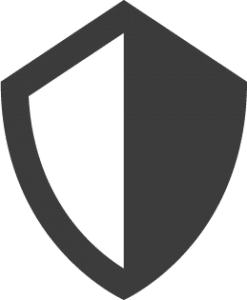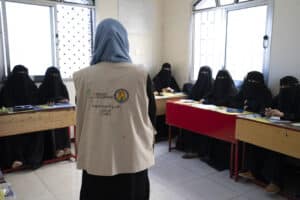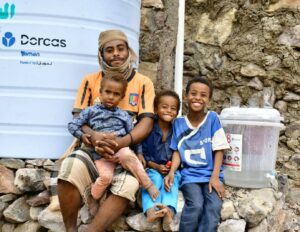Type of response:





The crisis in Yemen stands as one of the world’s largest humanitarian crises since the escalation of the conflict in 2015. In 2024, 18.2 million people are in dire need of humanitarian assistance and protection services. Yemen continues to face a complex protection crisis driving humanitarian needs in the country

. The crisis, characterised by civilian casualties, protracted large-scale displacement, marginalisation, and discriminatory norms, continues to have a profound impact on people across the country, including contributing to negative coping mechanisms.
The Joint Response
The partners, united by the Dutch Relief Alliance, are responding through a multisectoral intervention that aims to provide multifaceted, life-saving humanitarian support to those in need, prioritising people in the most vulnerable positions. Simultaneously, it aims to facilitate early recovery and enhance the resilience of communities affected by the conflict in Yemen.
The Yemen Joint response is primarily focused on the governorates of Sa’ada, Hajjah, Marib, Taiz, Lahj, Aden, and Al Dhale’e. These areas represent the highest concentration of individuals in need of humanitarian assistance, where the most severe needs and gaps persist.
The response proposes an integrated Food Security and Livelihood (FSL), Health, Multi-Purpose Cash (MPC), Protection, Water Sanitation and Hygiene (WASH), and protection mainstreaming programme.
The activities carried out under this Joint Response are the following:

The JR is planning to reach 412,684 people during this response.
Save the Children
Laan van Nieuw Oost-Indië 131-k
2593 BM Den Haag
The Netherlands
Chair organisation: Plan International
E: office@dutchrelief.org